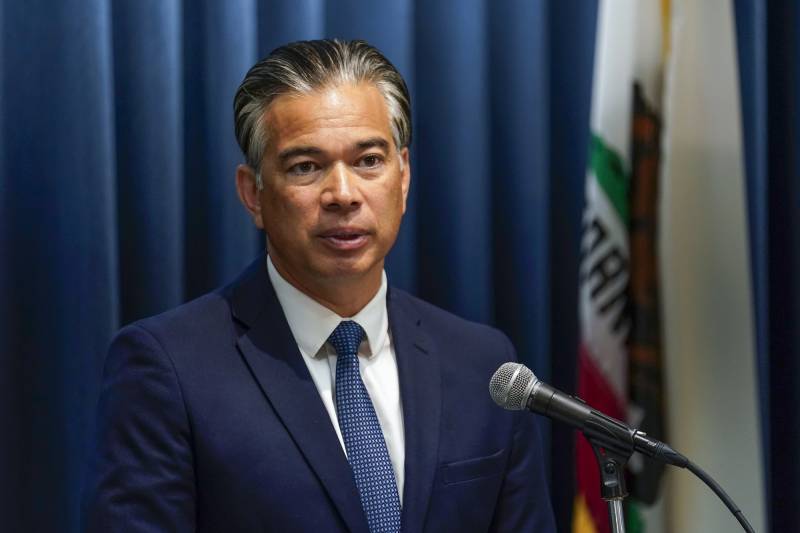[Updated at 3:15 p.m. Sept. 30]
California sued a Catholic hospital in Northern California for denying a pregnant patient emergency abortion care, Attorney General Rob Bonta announced during a Monday press conference.
In the lawsuit, filed in Humboldt County Superior Court, Bonta alleges Providence St. Joseph Hospital in Eureka violated multiple laws, including the state’s Emergency Services Law, which mandates hospitals to provide care “necessary to relieve or eliminate the emergency medical condition.”
The case reveals the limits and challenges of abortion access in California despite the state having some of the nation’s strongest reproductive health protections.
In February, Eureka resident Dr. Anna Nusslock was 15 weeks pregnant when her water broke, she said at the press conference. Multiple doctors told her that the twins she was carrying would not survive, and if she didn’t receive an emergency abortion, neither would she. But Providence St. Joseph Hospital told Nusslock that it could not provide her with an abortion due to a hospital policy prohibiting medical intervention so long as “fetal heart tones” were present.

